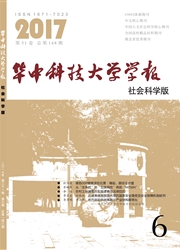

 中文摘要:
中文摘要:
为了提升本地区的经济总量和最大化本地财政收入,中国的地方政府会在实际税率维度展开朝底的竞赛,以达到吸引流动性税基的目的,这在一定程度上降低了辖区内企业的实际税负。基于1998-2007年中国工业企业微观数据,本文采用模糊断点回归的方法考察了上述企业税负的降低对于企业行为和绩效的影响。研究表明,在企业成立时间的维度上,企业的实际税负在2002年前后存在明显的断点,2002年前成立的老企业的实际税负要显著低于2002年后新成立的企业。进一步的研究发现,实际税负降低之后,企业的首要选择是增加固定资产投资,而不是研发投资。当企业成立时间限定在断点前后6个月以内时,税负每降低一个单位,企业的固定资产投资会提升13%左右;同时在税负降低之后,企业全要素生产率水平也有明显的提升。本文的研究对现有的税收征管体制改革带来了重要的启示。
 英文摘要:
英文摘要:
To maximize local GDP and fiscal revenue,Chinese local governments will race to provide a lower effective tax rate so as to attract mobile enterprises,which will lower down the tax burden of local companies. Based on the micro-data of Chinese industrial enterprises between 1998 to 2007,this paper investigates the effect of the above mentioned tax cut on enterprises' total factor productivity by employing a regression discontinuity design. We find that,there is a significant jump in companies' tax burden at the birth year cutoff,which leads to a 13% difference on fixed investment between new companies and old companies,while has no significant effect on RD investment. Furthermore,the increase of fixed investment leads to a higher level of TFP for old companies. Our conclusions bring some important complications for the current reform of tax collecting system in China.
 同期刊论文项目
同期刊论文项目
 同项目期刊论文
同项目期刊论文
 期刊信息
期刊信息
